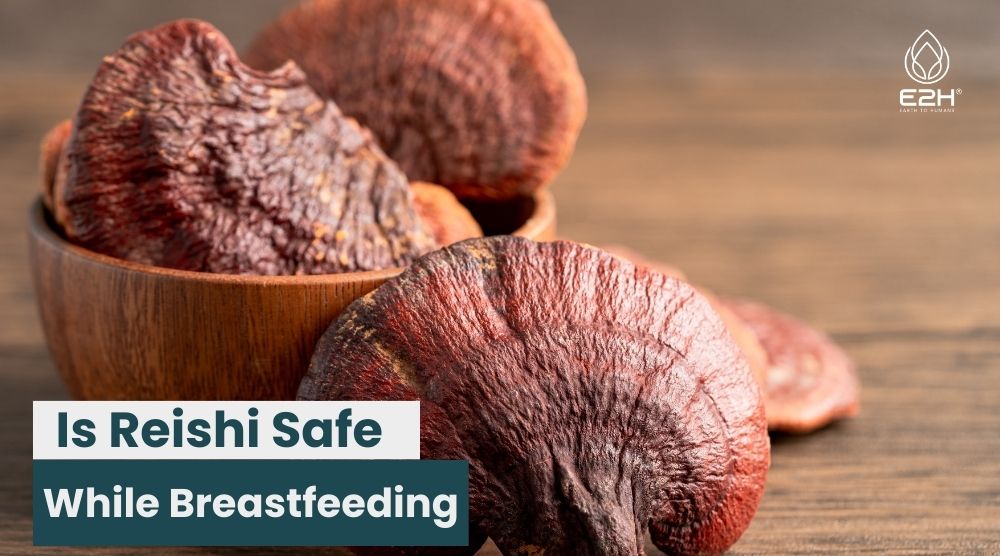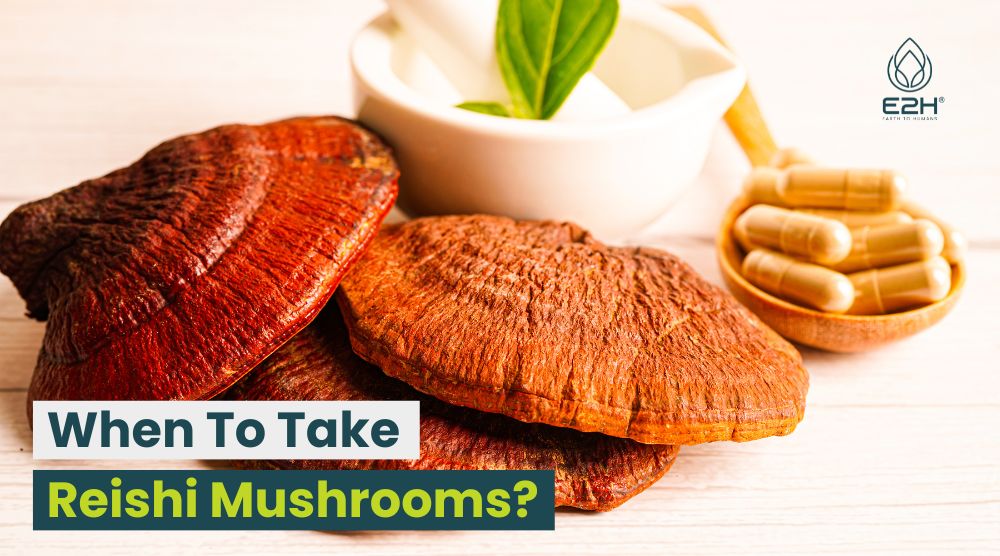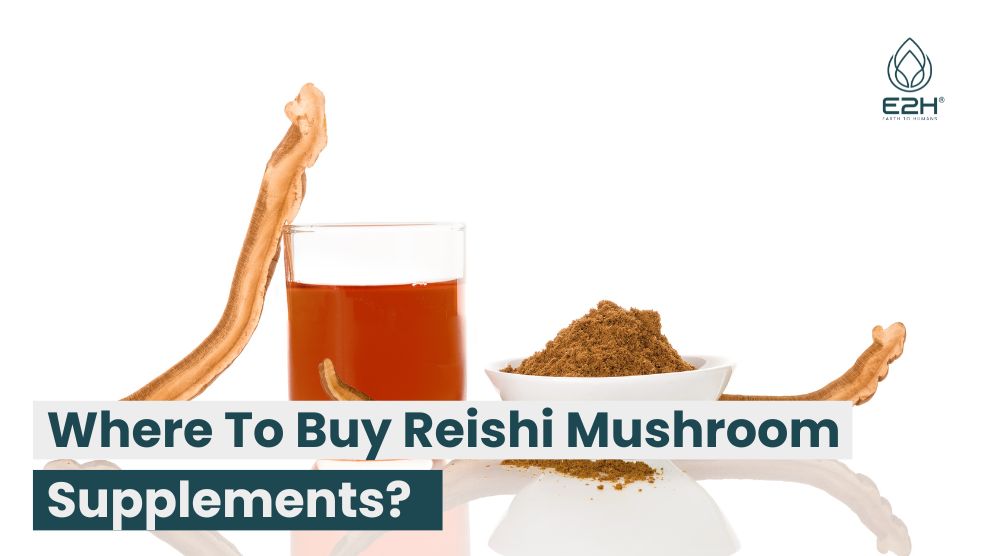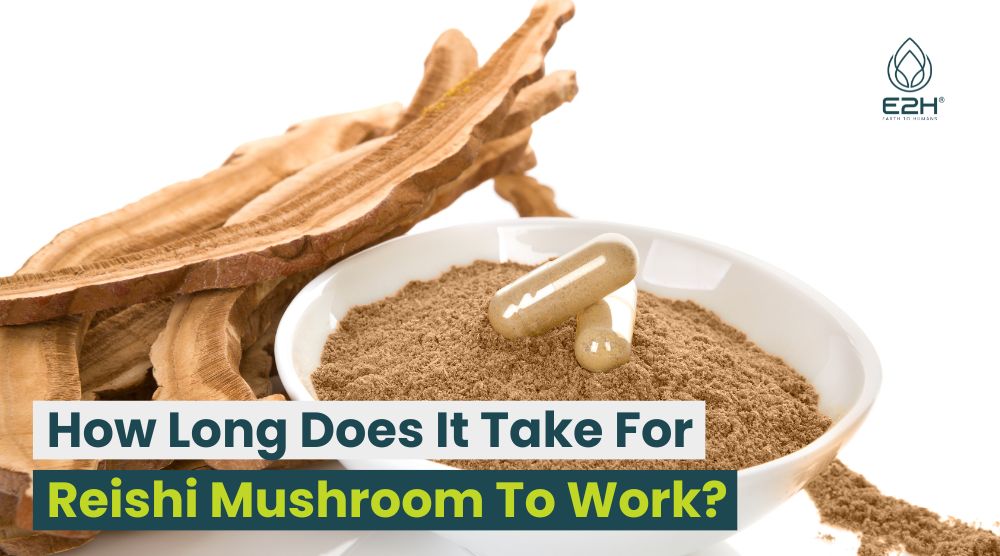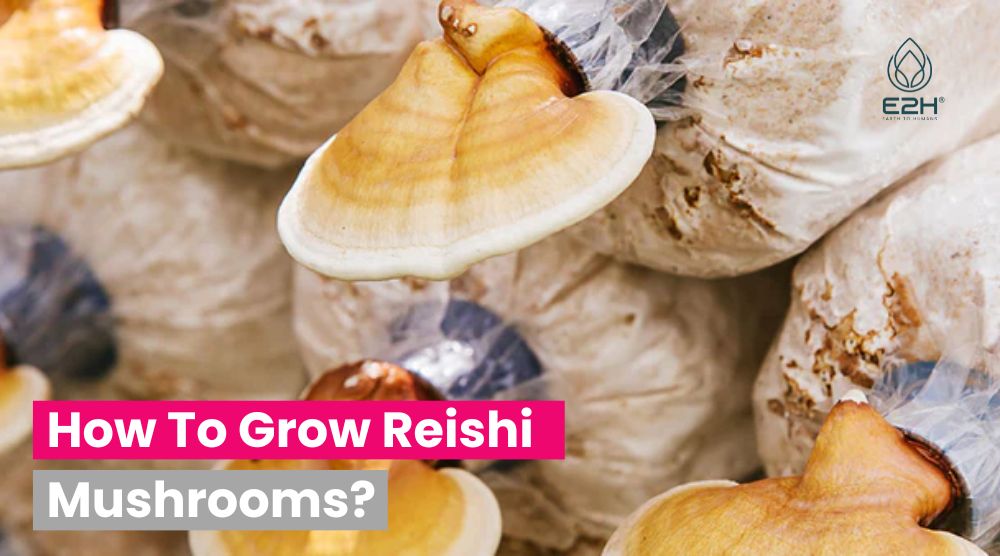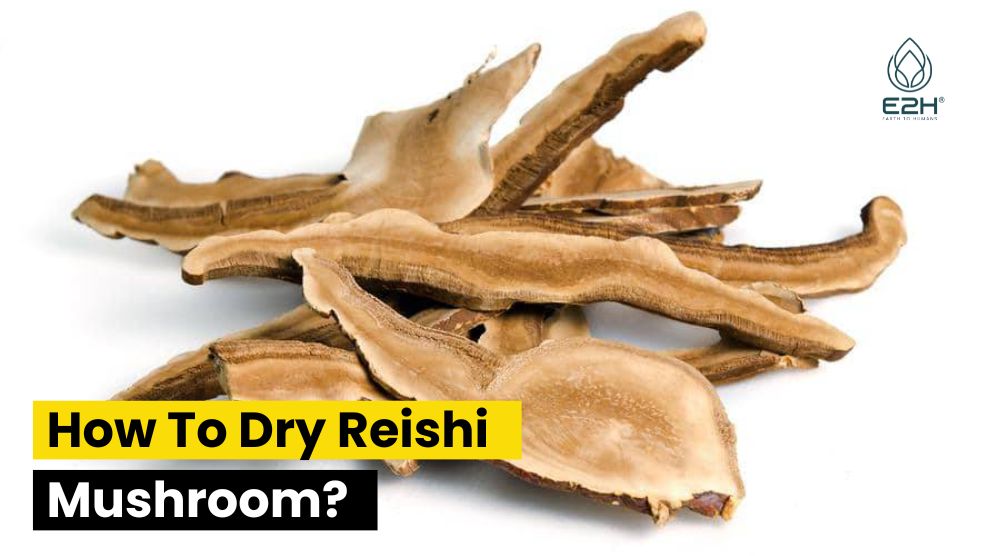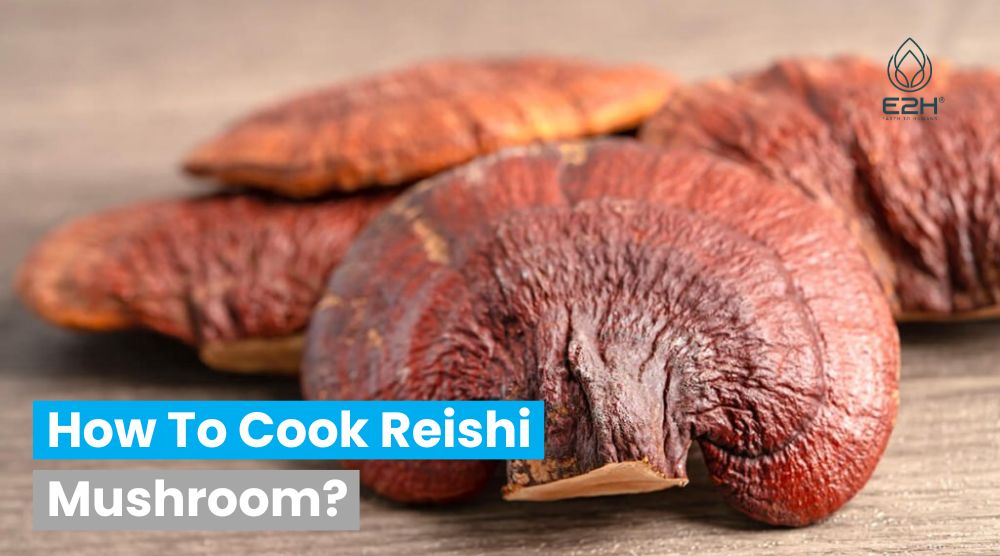Is Reishi Safe While Breastfeeding: Reishi’s safety while breastfeeding is uncertain. Limited evidence suggests moderate use might be compatible, but risks include allergic reactions and potential impact on blood pressure.
Navigating Risks and Benefits: Reishi and Breastfeeding
Navigating Risks: Caution in the Reishi Realm
As we tread the Reishi realm during breastfeeding, caution becomes our guiding star. The lack of concrete evidence for treating specific conditions prompts a whisper of liver toxicity with prolonged, intense use.
The plot thickens as we explore the potential risks. The curtain rises, revealing potential hazards in excessive plant preparations and emphasizing the importance of quality sourcing. Labeled as “Very Low Risk,” Reishi encourages moderate use, threading the needle of compatibility with breastfeeding.
The symphony echoes moderation, quality, and healthcare collaboration form the core of a safe breastfeeding narrative.
Benefits of Reishi During Breastfeeding: A Gentle Boost
Step into the beneficial realm of taking Reishi mushroom during breastfeeding. This ancient fungus, adorned with polysaccharides and triterpenoids, whispers tales of immune support. While scientific backing for specific treatments is elusive, the moderate use of Reishi mushroom stands as a “Very Low Risk” companion to breastfeeding.
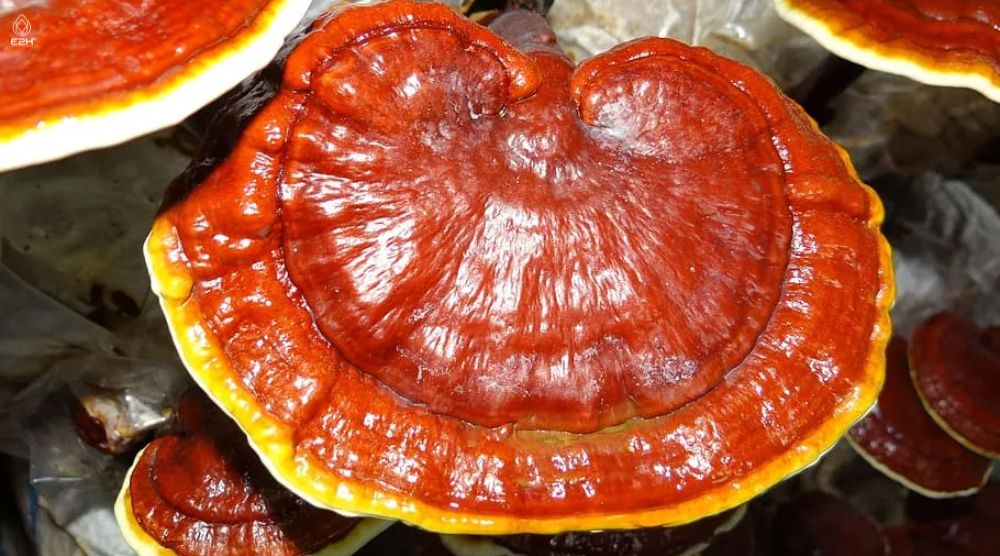
Its history, draped in tradition, highlights compatibility when embraced with caution. The saga unfolds in the synergy of quality, moderation, and expert guidance, offering a gentle boost to proven health benefits both mother and child.
Can Reishi supplements impact breast milk production?
- Unveiling the Possibilities: Reishi, a revered mushroom, dances on the stage of breastfeeding. While the scientific spotlight is dim, anecdotes narrate reishi mushroom and its potential influence on breast milk production. The whispers in traditional medicine suggest a connection, but conclusive scientific evidence still remains elusive.
- The Polysaccharide Pondering: Within Reishi’s repertoire, polysaccharides take center stage. These compounds, adorned with potential for immune system support, prompt curiosity about their impact on lactation. Exploring the realms of possibility, we navigate the subtle dance between Reishi and the lactation rhythm.
- A Tale of Moderation: Moderation becomes our guiding principle. As Reishi steps into the breastfeeding narrative, the emphasis on controlled consumption echoes. The delicate balance of milk supply also unfolds, hinting at compatibility when approached with mindful doses.
- Quality Assurance and Breastfeeding Harmony: Quality sourcing emerges as the unsung hero. Ensuring Reishi’s purity and authenticity becomes a cornerstone in the breastfeeding journey. The resonance between quality assurance and harmonious breastfeeding experiences is a melody worth exploring.
- Collaborating with Healthcare Wisdom: The curtain rises on the importance of healthcare collaboration. Consulting with professionals becomes a compass, guiding mothers through the Reishi labyrinth during breastfeeding. The synergy between traditional wisdom and modern healthcare illuminates the path to informed decisions.
Can Reishi interact with medications taken during breastfeeding?
As breastfeeding mothers consider the integration of Reishi supplements, the intricate dance with medications beckons exploration. Reishi’s influence on blood pressure introduces a nuanced balancing act that lower blood pressure for those on related medications, demanding vigilant attention.
Delving into coagulation dynamics, especially concerning anticoagulant drugs, unravels the potential for altered blood clotting dynamics. The quest for immune support through Reishi intertwines with the breastfeeding journey, inviting scrutiny for possible synergies or conflicts with immune-modulating medications.
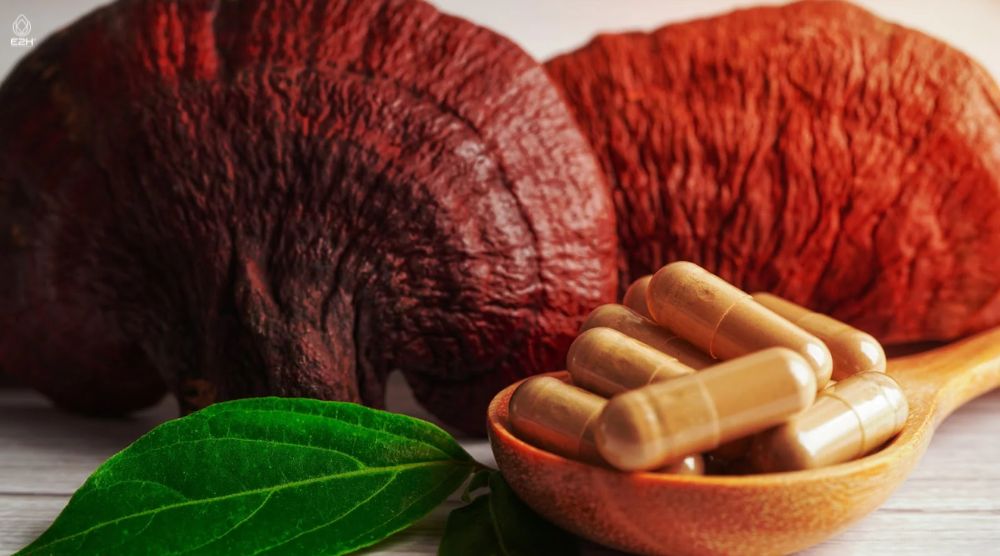
Amid this complex landscape, a collaborative approach with healthcare professionals emerges as paramount, ensuring a harmonious alignment between medications, Reishi, and maternal well-being.
Are there specific precautions for breastfeeding moms considering Reishi?
- Source Verification: Ensure Reishi supplements are from reliable sources, avoiding potential risks from misidentification or contamination.
- Moderation Embrace: Adhere to recommended doses, steering clear of excessive intake to avert potential toxicity concerns.
- Professional Consultation: Seek guidance from healthcare professionals, weaving their expertise into decisions for a balanced breastfeeding journey.
- Phytotherapy Prudence: Exercise caution with plant preparations, mindful of potential toxicities and endocrine disruptions.
- Quality Over Quantity: Acknowledge that “natural” doesn’t universally equate to safety, emphasizing the pivotal role of appropriate dosage.
- Continuous Monitoring: Embrace a follow-up mechanism, aligning with healthcare recommendations for a vigilant and secure Reishi integration.
Reishi’s Impact on Immunity: Friend or Foe for New Mothers?
Reishi’s potential influence on postpartum immunity reveals a nuanced landscape. This fungal ally, celebrated for its immunomodulatory prowess, may be a friend for new mothers.
Its stress-reducing properties could fortify mental resilience, as mental and emotional wellbeing are crucial in navigating the challenges of postpartum life. Exploring Reishi’s role in enhancing sleep quality unveils a potential aid for new mothers seeking restorative sleep amid the demands of caring for an infant.
Additionally, investigating Reishi’s impact on breastfeeding dynamics might illuminate its contribution to lactation success, presenting a holistic approach to support new mothers on their wellness journey.
Does Science Back Reishi’s Safety for Breastfeeding?
Venturing into the realm of scientific inquiry, we seek assurance regarding Reishi’s safety during breastfeeding. Current research on Reishi’s impact during pregnancy and lactation remains sparse, introducing an element of uncertainty.
The absence of conclusive studies prompts caution, emphasizing the need for consultation with healthcare providers. While traditional use applauds Reishi’s immune-boosting properties, the lack of standardized regulations raises concerns.
Navigating the nuances of safety demands a vigilant approach, urging breastfeeding individuals to prioritize comprehensive discussions with medical professionals. As science endeavors to unravel Reishi’s mysteries, personalized guidance ensures informed decisions for maternal and infant well-being.
Can Reishi help with postpartum depression while breastfeeding?
The potential synergy between Reishi and breastfeeding emerges as a subject of intrigue. Traditional use accords Reishi a revered status, lauding its stress-relieving attributes.
While anecdotal evidence and historical practices suggest positive outcomes, a dearth of comprehensive scientific studies invites a nuanced perspective. Exploring Reishi’s role in postpartum depression unveils a multifaceted landscape where ancient wisdom intersects with modern inquiries.

Acknowledging the delicate nature of maternal mental health, discussions with healthcare providers become pivotal. As we navigate the intersection of tradition and science, personalized strategies illuminate pathways for holistic postpartum support.
How are medicinal mushrooms, particularly reishi, utilized for health benefits?
Medicinal mushrooms, notably reishi, are harnessed for health benefits through extracts, powders, or capsules. With immune-boosting properties, reishi supports overall well-being and stress reduction.
Commonly available in supplements or teas, reishi provides convenient access to its therapeutic compounds. Whether consumed directly or incorporated into various formulations, medicinal mushrooms like reishi offer a natural and holistic approach to promoting health.
What specific health conditions are targeted by reishi mushroom in traditional Chinese medicine?
In traditional Chinese medicine, reishi mushrooms are employed to address diverse health conditions. They are recognized for their efficacy in managing respiratory diseases like asthma, supporting cardiovascular health, and alleviating symptoms associated with high blood pressure and high cholesterol.
Additionally, reishi mushrooms are utilized to enhance liver and kidney function, combat viral infections, and promote emotional well-being. The adaptogenic qualities of reishi make it a versatile remedy in traditional practices.
FAQs
Is it safe to consume Reishi while breastfeeding?
Reishi safety during breastfeeding lacks conclusive research. Consult your healthcare provider for personalized advice considering breast feeding, potential risks and health benefits.
Are there potential side effects of Reishi while nursing?
Possible side effects include dryness in the mouth, throat, and nasal passages, along with dizziness, headaches, and stomach upset. Exercise caution.
Can Reishi impact breast milk production positively?
Evidence on Reishi’s effect on milk production is inconclusive. Rely on established lactogenic foods and consult your healthcare provider for breastfeeding support.
Does Reishi interact with medications for breastfeeding moms?
Reishi might interact with medications; consult your doctor, especially if taking anticoagulants or medications for high blood pressure. Prioritize informed decisions for your well-being.
Any specific precautions for breastfeeding moms considering Reishi?
Breastfeeding moms should avoid Reishi due to limited safety data. Prioritize well-researched alternatives and consult your healthcare provider for personalized guidance.
Conclusion
While Reishi’s benefits are intriguing, its safety during breastfeeding remains uncertain. It’s crucial to prioritize your infant’s well-being. Consulting your healthcare provider ensures informed decisions aligned with your specific health circumstances. Consider alternative methods to support your postpartum journey. Always prioritize your health and your baby’s, seeking guidance for a safe and nurturing breastfeeding experience.
